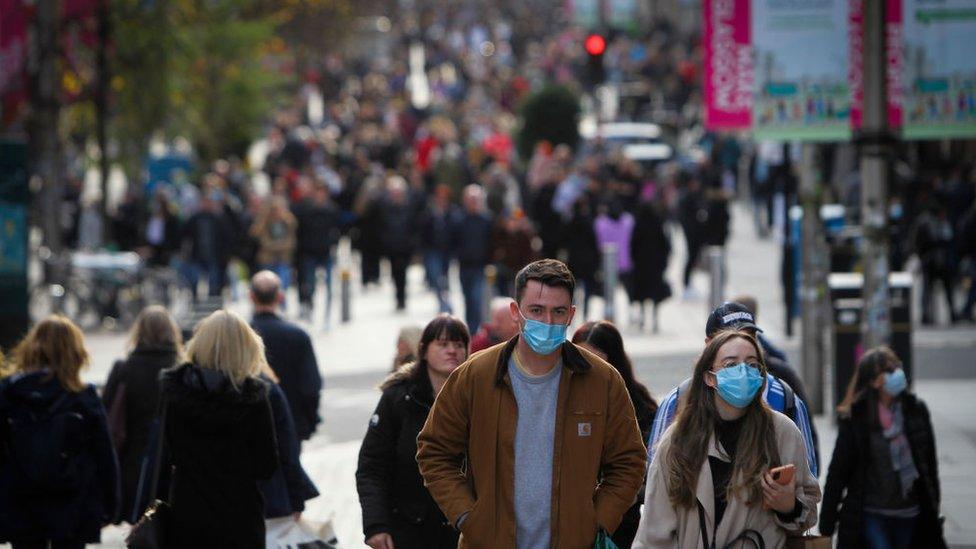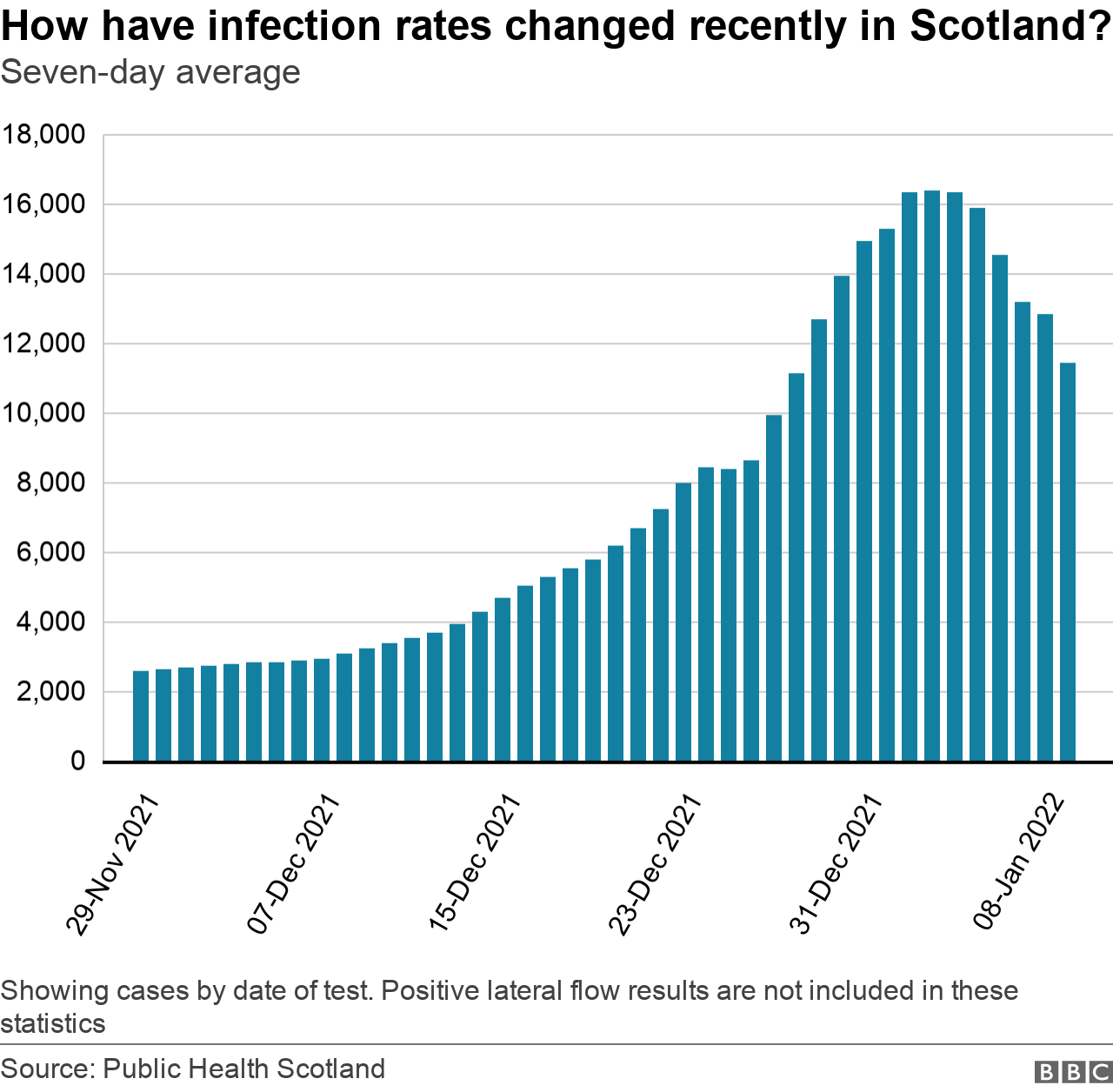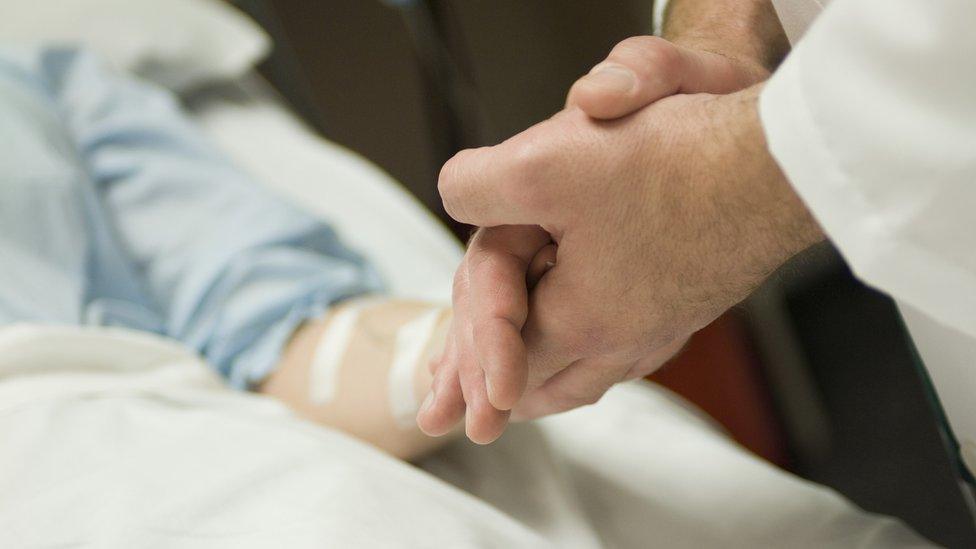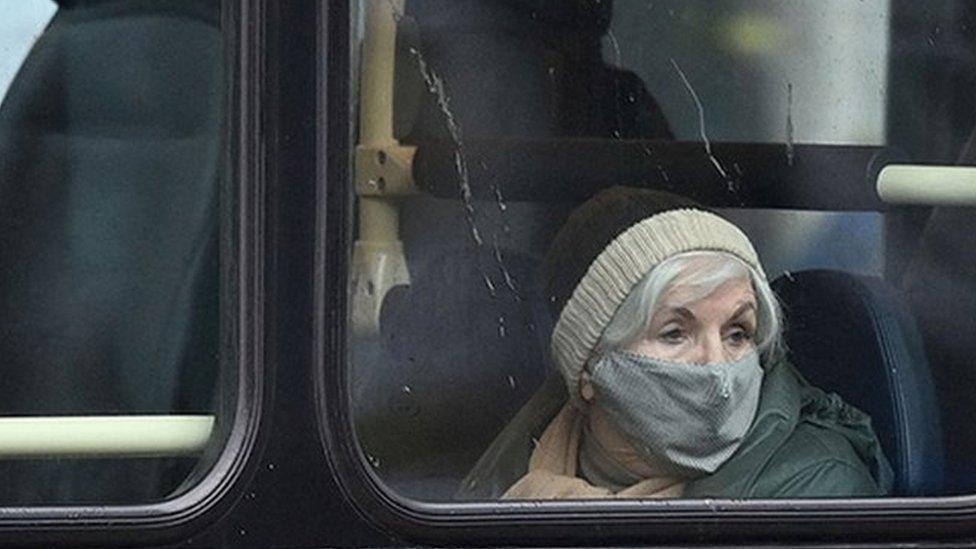Covid in Scotland: 'Cause for optimism' in case rate data
- Published

A leading health expert has said there is "cause for optimism" in the latest data about Covid cases in Scotland.
Jillian Evans, head of health intelligence at NHS Grampian, said a slowdown in infection rates was "positive news" but added that "we're no way out of the woods".
Ms Evans warned that infections from the Christmas period were still resulting in hospitalisations now.
Humza Yousaf has said the Omicron wave appeared to be "decelerating".
However, the health secretary said on Friday more data was needed to be definitive.
Scotland's national clinical director, Prof Jason Leitch, also said he was hopeful cases may be reaching or have reached a peak, but added: "You can only see the peak once you are off it and it is behind you".
Speaking to BBC Radio's Good Morning Scotland radio programme, Ms Evans was asked about the situation in her health board area.
She said: "What a difference a week has made for us.
"Certainly, a slowing down of those infection rates that we saw in just in the run-up to Christmas and at the start of New Year.
"The issue for us right now of course is with high infection rates right up to that Christmas period and into New Year we will see the effect of that in hospitals across Scotland, so the baked-in cases we have got we expect to see for the next week or two weeks.
"So that means we're still under pressure in health and social care systems but it gives us cause for optimism."

Prof Linda Bauld, a professor of public health at the University of Edinburgh and chief social policy adviser to the Scottish government, said Omicron cases in the UK appeared to be "stabilising".
She told BBC Breakfast: "The cases, if we look at them, are going down by over 20%.
"In fact, yesterday I think was the last day, the first day for a while we've had less than 100,000 cases so things seem to moving in the right direction."
However, she cautioned the number of patients in hospitals was still "very high".
Meanwhile, the Scottish Lib Dems have said Scotland's coronavirus inquiry should deliver its interim findings within a year of starting.
Party leader, Alex Cole-Hamilton, said previous judicial inquiries could "drag on for years" before delivering their conclusion.
The Penrose inquiry into the contaminated blood scandal took seven years to report, while an inquiry into Edinburgh's trams was set up in 2014 and is still to deliver its final report.
'Drag on for years'
Mr Cole-Hamilton said: "Scotland needs a ruthless and thorough public inquiry that can go anywhere, speak to anyone and demand answers for all those who have suffered so much over the past two years.
"Unfortunately, we know from past form that these inquiries can drag on for years before reaching a conclusion and time is pressing."
Lady Poole QC will lead Scotland's independent coronavirus inquiry, which will look at 12 areas around the handling of the pandemic.
She is currently in the process of appointing staff before the inquiry begins to consider evidence.
A Scottish government spokesman said: "While this is a matter for the inquiry, we are confident Lady Poole will strike the right balance between, on the one hand, addressing the wide range of questions that so many people have and, on the other, making sure that the inquiry can be delivered at speed, so that we can learn and benefit from lessons as early as possible."


Related topics
- Published15 January 2022
- Published14 January 2022

- Published11 January 2022
